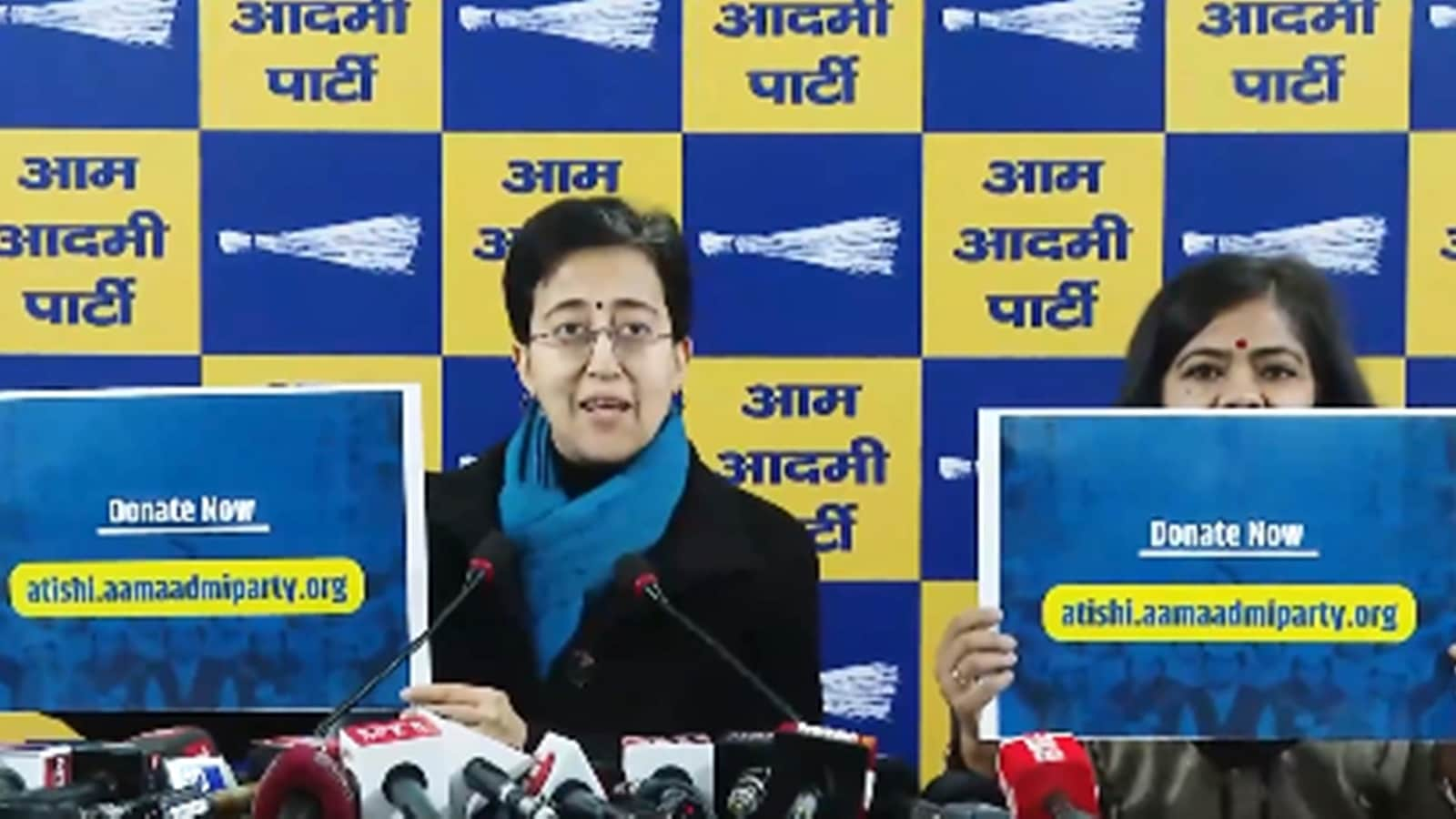 |
|
The Delhi political landscape is witnessing a unique fundraising initiative as Atishi, the Chief Minister and Aam Aadmi Party (AAP) candidate for Kalkaji, has embarked on a crowdfunding campaign to finance her upcoming election bid. This move, announced at a press conference, highlights the AAP's continued reliance on small donations from ordinary citizens as a cornerstone of its political strategy. Atishi's public appeal for Rs 40 lakh underscores the financial realities of contesting elections in a significant metropolitan area like Delhi. The campaign's success will not only determine the financial viability of Atishi's campaign but also serve as a testament to the public's faith in the AAP's ideology and its commitment to transparency and accountability in political financing.
The decision to publicly solicit funds through crowdfunding represents a departure from the traditional methods of political fundraising, often characterized by reliance on large corporate donations or wealthy individuals. By opting for a crowdsourced approach, Atishi and the AAP aim to cultivate a stronger connection with their voter base, solidifying the party's image as one driven by grassroots support rather than elite patronage. This approach also allows for a greater level of transparency, as donations are publicly acknowledged, fostering a sense of collective ownership in the electoral process. However, such a transparent method also exposes the campaign to potential scrutiny regarding the source and legitimacy of the funds received. The campaign’s success hinges on the public's trust and willingness to participate actively in the funding process.
The choice of crowdfunding raises important questions about the financial dynamics of elections and the role of citizen participation in funding political campaigns. It also challenges the established norms of political fundraising, which are often opaque and dominated by influential figures and corporate interests. Atishi’s campaign provides a case study to examine the viability of crowdsourcing as a primary method of political fundraising, especially for a major party like the AAP. The success or failure of the campaign will not only impact Atishi's electoral prospects but will also shape the discourse on campaign finance and citizen engagement in the political process. Further analysis is needed to understand the long-term implications of this approach, including its impact on electoral equality, transparency, and accountability within the Indian political system. The scale of donations received, the demographics of donors, and the overall impact on the campaign will provide valuable insights into the effectiveness of this innovative approach to electoral funding.
The AAP's consistent emphasis on citizen engagement and its reliance on small donations are key aspects of its brand identity. This crowdfunding campaign reinforces this image and serves as a crucial test of public support. The success of the campaign could potentially inspire other parties to explore similar models of fundraising, leading to a broader shift in how political campaigns are financed in India. However, challenges remain. Ensuring the security and transparency of the online donation process is critical, and measures to prevent undue influence or misuse of funds need to be carefully considered. The campaign also raises questions about the potential for disparities in funding between candidates with access to broader networks and those relying solely on public contributions.
Beyond the financial implications, the crowdfunding campaign reflects a broader trend towards citizen engagement in political processes. By directly involving citizens in funding their candidate, Atishi and the AAP are fostering a sense of ownership and participation that transcends traditional voter engagement. This approach could have significant long-term consequences, not only for the AAP's electoral prospects but also for the broader political landscape in Delhi and potentially across India. Analyzing the outcome of this campaign, therefore, is vital to understanding the changing dynamics of political finance and the evolving relationship between citizens and their political representatives. The subsequent analysis of the data from this crowdfunding exercise will be crucial in assessing the effectiveness of this model and determining its potential for wider adoption within the Indian political system.
Source: Delhi CM Atishi launches crowdfunding campaign to contest assembly polls
